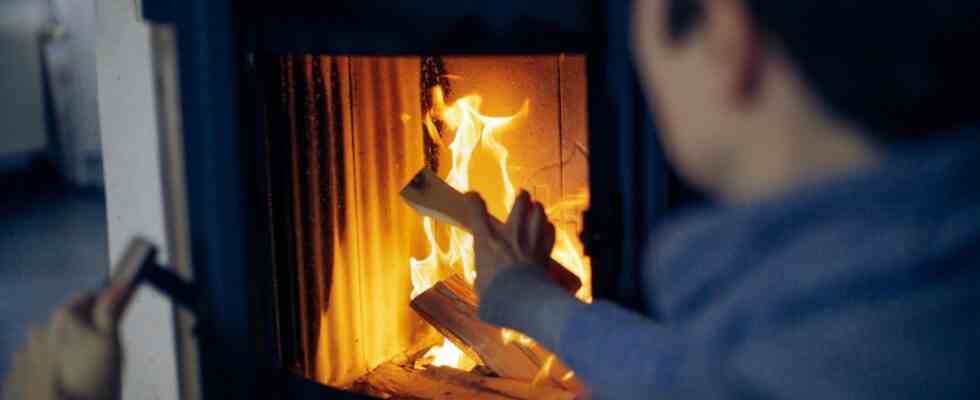Those who earn less money heat more often with district heating. Those with a higher income, on the other hand, are more likely to use pellets, heat pumps or similar for heating. This is shown by an evaluation by the employer-financed Institute of the German Economy (IW). Economists have analyzed how the Germans heat. There are big differences – the consequences have for the price brakes, with which the federal government wants to relieve people this winter.
In rural areas, only relatively few people will benefit from the gas price brake, the IW paper shows. The brake relieves citizens when their gas price rises particularly sharply. But in towns with fewer than 5,000 inhabitants, not even a third of the households heat with gas or district heating. In these particularly rural communities, heating oil is important instead, and almost 40 percent of households use it here. In addition, the proportion of those who heat with pellets or wood is exceptionally large: every tenth property in these regions is kept warm in this way.
The price of pellets and wood has almost doubled on average, and heating oil has also become much more expensive. And unlike gas buyers, oil buyers typically don’t have long-term contracts, so the higher costs can kick in without a buffer. The federal government and the federal states have therefore decided to grant state aid here too – with a so-called hardship fund.
However, the amount of aid reserved for this by the federal government is significantly smaller, and the matter is more complicated for those affected. In the case of gas and district heating, the energy suppliers and, if necessary, the landlords must ensure that the deduction falls. The total of 18 million households in Germany that heat with gas do not need to become active. However, pellet, wood and oil heaters will have to submit an application in their respective federal state.
In these cases, tax money should be given to those who have heating costs that are more than twice as high. The period from January 1 to December 1, 2022 is calculated. The subsidy is therefore retrospective – so it is still worth saving on heating in 2023. It is capped at 2,000 euros per household.
The IW data shows how central the gas price brake is. The economists use a large, scientific household survey from 2020 for the analysis. Even in small towns with up to 20,000 inhabitants, gas is the most important energy source for heating, in large cities district heating is also particularly important. A very similar price brake applies here.
In the case of district heating in particular, the state money often goes to people who really need the help. Statistically, every fourth household that heats in this way is at risk of poverty.
The situation is completely different with pellets and heat pumps. Anyone who heats with it earns more money than others, at least on average, and also lives in significantly more square meters. For comparison: A district heating apartment is 73 square meters on average, while those who heat with wood or pellets live in an average of 123 square meters. In more than two thirds of all cases, this is also property, which many district heating customers can only dream of.
People who do not need tax money will probably also benefit from state aid for pellets. “Substantial parts of the aid are likely to flow to households that could bear the higher burden without state subsidies,” write the IW economists Judith Niehues and Maximilian Stockhausen. On the other hand, it is good for social cohesion and acceptance of the sanctions against Russia if the hardship fund closes a gap in justice.
In fact, gas customers who don’t actually need taxpayer money also receive state aid. Because nobody knows whether behind a gas meter is a villa with a pool or a block of flats in a poorer area. In order for this effect to be somewhat smaller, you have to pay tax on the state aid from the gas price brake if you earn a lot of money: Those who still have to pay the solos are affected.

